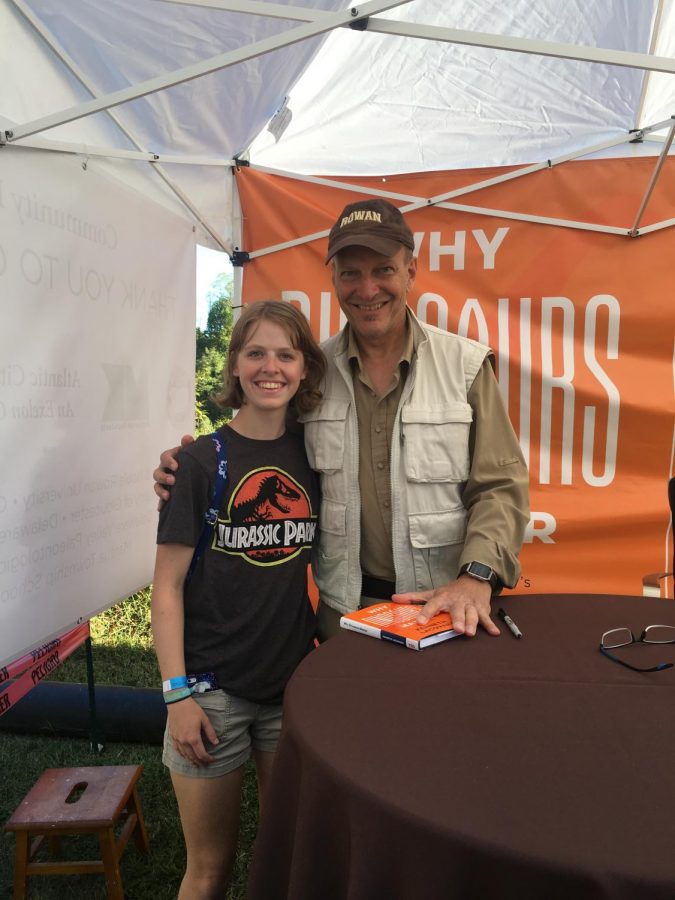Hayley’s Corner: Why Dinosaurs Matter
Dinosaurs matter, not as an extinct clade, nor as a colloquialism referring to inflexibility, and not just as a staple for childhood. Dinosaurs matter, as Kenneth Lacovara argues in his new book Why Dinosaurs Matter, because dinosaurs represent the quintessence of adaptability and answer curiosities we face today.
The future lies in the past, and the dinosaurs are the vehicle for such transference.
This book, an in-depth exploration of the history of dinosaurs and the emergence of the term fossils (and subsequently paleontology), specifically gives credit to the enumerable contingencies that allowed for the 165 million year reign of reptilian beasts.
Lacovara addresses the fossil record in such a way that makes readers re-evaluate their insignificance within the boundaries (or rather, lack thereof) of deep time. More time divides Stegosaurus and T. rex than does humans today and T. rex.
With anecdotes and quite a few genuinely surprising facts, this book encourages readers to re-explore dinomania in an intellectual light. Lacovara rejects the validity of children’s views of dinosaurs. Specifically addressing titanic sauropods, he re-molds their image from one of gentle giants to territorial ferocity.
Touching on Darwin, catastrophism, and the awakening of evolutionist views, Lacovara is able to paint a clear picture of the dinosaur timeline’s extent into modern understanding.
He presents a potent argument (a well-organized rant, really) explaining why dinosaurs should not be synonymous with evolutionary failure. Tackling modern misconceptions of the beast, the book unwinds and rebuilds readers’ views on the titanic reptiles. With a topic quite often only understood in the context of early age and childhood, Why Dinosaurs Matter translates the incongruities within childhood fascination with these creatures into an intellectual argument on the efficacy and preeminence of those nested within the grouping of Dinosauria.
He even touches upon the parallels between dinosaurs (and their extinction) and earthly issues humans face today – especially climate change.
Lacovara even describes his own paleontology breakthrough in vivid detail – delineating his discovery of the giant Dreadnoughtus in the frigidity of Patagonia.
He accomplishes such with sophisticated prose reminiscent of fiction, rather than scientific jargon.
The book has a mild structure and narration equivalent to a scholarly conversation, rendering it easy to follow yet spotted with little-known facts.
The unique topic this book covers, paired with the artistic style with which the author presents it, renders it a worthwhile read that almost every person with any recognition of dinosaurs can relate to.
From arguing that penguins are dinosaurs to explaining the fossil seller that the famous “she sells sea shells by the sea shore” describes, this book successfully draws readers in with an enlightening and satisfying read in more depth than any childhood understanding could boast.







